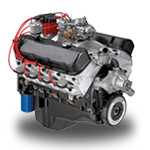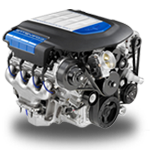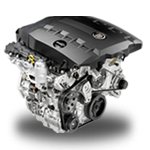Because so many cars use diesel engines nowadays, curiosity about diesel engines in general has increased. To some people a diesel engine is a puzzle. Many people actually have no idea how any engine operates. Although a diesel engine is an internal combustion engine, as a petrol-gasoline engine is, it produces power differently than other ICE [internal combustion engines].
Let me explain how diesel engines work in terms you will understand. A diesel engine does not have spark plugs. So another method has to be used to make an explosion in the cylinder when it’s at the top of the compression stroke, [allowing the smallest space in the cylinder], producing the most cylinder pressure, or compression as it’s known as.
The basic structure of the longblock is the same. It has the same basic components inside, including pistons, rods, crankshaft, camshaft/s, cylinder heads and intake system. Based on the tremendous impact of the explosion, the components listed are much stronger than a gasoline engine.
The main functional difference is this: A gas motor uses a spark plug to ignite the compressed gasoline in the cylinder. Therefore causing an explosion which forces the position down, thus the power stroke. Gasoline motors don’t need lots of compression to operate because of the spark plug igniting the gas.
Diesel engines don’t use spark plugs. They use glow plugs to help start them cold, but those have nothing to do with the actual operation of the engine. Diesel engines use extreme compression to spontaneously ignite the diesel fuel in the cylinder. Oil in general will spontaneously explode at extreme pressures.
Have you ever looked at the warning on a scuba tank gauge, or an oxy/acetylene welding gauge. It says “Don’t lubricate or use oil on this gauge, the pressure will cause a spontaneous explosion”. In RED letters.
The diesel fuel is injected into the cylinder as the valves close and seal the combustion chamber. As the piston comes up and squeezes the fuel [compression] under 800 or more PSI of pressure, the fuel spontaneously combusts/explodes and forces the piston down. Diesel engines make unusual torque at low rpm’s. Excellent for hard work.
It’s actually the first form of an engine. They were operated off of vegetable oils in the late 1800’s. At that time, diesel engines were very unrefined, so when gasoline engines came out, they were preferred because they ran smoother at that time. Diesel engines were used in trains, boats, construction equipment in the old days.
If you arrived here looking for a replacement diesel engine and got involved in reading this, call GotEngines.com at 1-941-269-8284 for more information on the exact diesel engine of your interests. We are here to answer your questions.
We sell rebuilt diesel engines, remanufactured diesel engines and used diesel engines for all cars and trucks. Part of our job is educating our customers. Thanks for reading. Feel free to ask more questions, that is why I’m here. GotEngines.com @ 1-941-269-8284.






